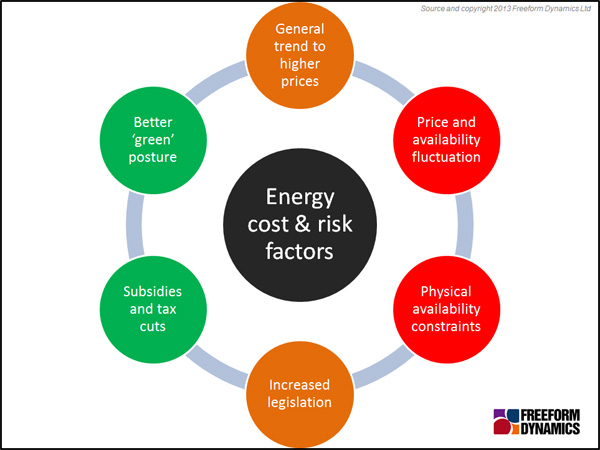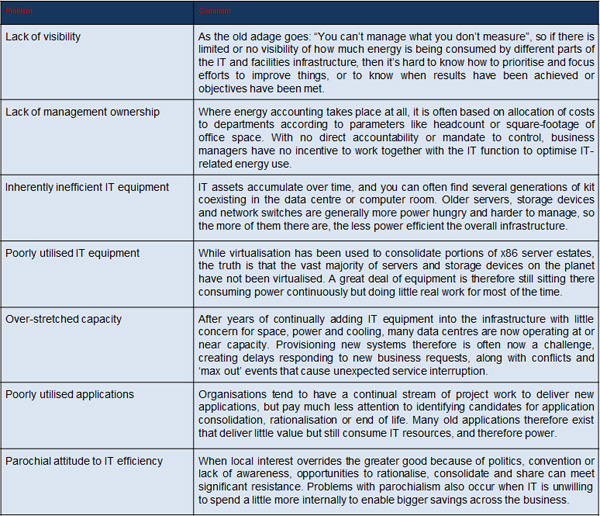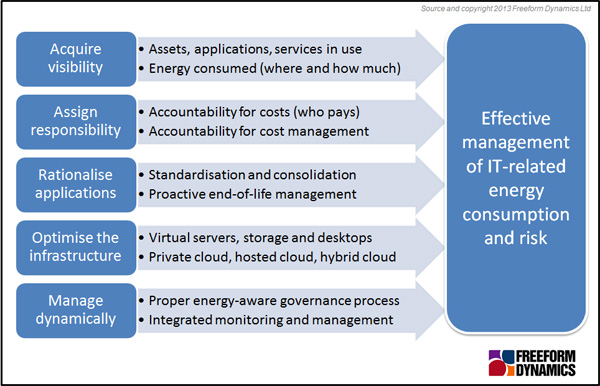By Tony Lock
Over several decades IT management has focussed almost exclusively on keeping servers running. It is only in the last few years that much attention has been paid even to critical areas such as storage and network management except when new systems are installed, or when things go wrong. Now though things are changing and the emphasis is slowly being shifted to the dynamic management of systems to optimise resource utilisation, improve service quality and keep a better handle on costs. In some organisations this is bringing the management of energy into sharper focus, a trend that is likely to spread across many more businesses in years to come. Freeform Dynamics has a paper looking at IT energy management and how identified 5 imperatives to make things better.
Some of the other factors exerting pressure on organisations to pay more attention to energy consumption are illustrated in the figure below.

Several of the issues highlighted can have a clear and immediate impact on how much effort organisations put into energy management. In particular the rising cost of energy, and its visibility in terms of IT consumption of electricity, is now influencing an increasing number of operational decisions. Meanwhile, concerns over energy availability and potential legislation are also likely to be matters to be addressed in the very near future. Unlike several of the other factors mentioned, enabling a better green posture via effective energy management is still regarded as a collateral benefit rather than an initiator of change in and of itself.
Given the drivers now influencing energy management, why has the area been overlooked in the past by IT? The table below summarises the factors our research has highlighted over the course of many studies combined with our own first hand experiences of working in IT.

But better energy monitoring capabilities alone are unlikely to change things positively unless the second point in the table is also addressed. Until someone in the enterprise is charged with tackling energy management, there is little prospect that things will change. And the person handed the mandate of energy management also requires the backing of business managers and IT to change things, together with the budget and ‘incentives’ to make things happen.
In order to address energy management properly, there are five key steps that can be taken, each of which delivers benefits in and of itself, but when combined together improvements can be dramatic.
